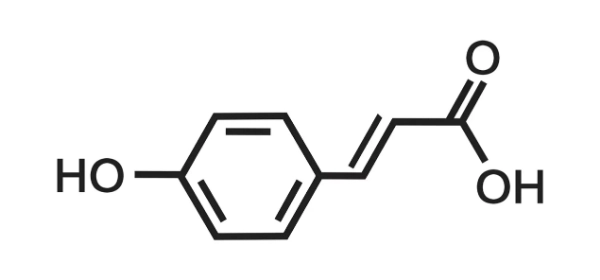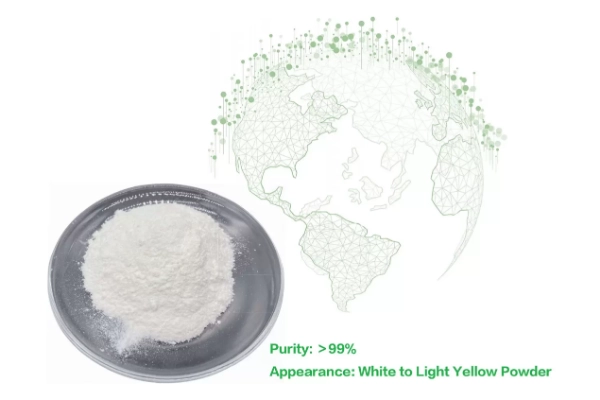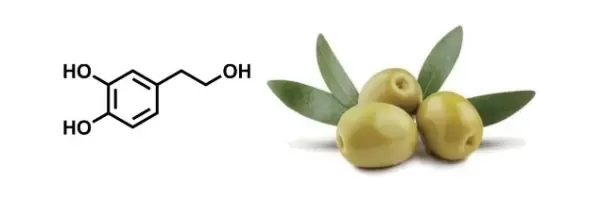p-Coumaric Acid is also known as "4-hydroxycinnamic acid" or "p-hydroxyphenylacrylic acid". In this blog post, Viablife will share the effects of natural polyphenol p-Coumaric Acid for sale, which not only has strong antioxidant properties, but is also antibacterial and anti-melanin.

1. Antioxidant Properties of p-Coumaric Acid
At the heart of its beneficial effects, p-Coumaric Acid' s antioxidant properties are among the most widely studied. Antioxidants play a crucial role in protecting the body from oxidative stress, a condition where an excess of free radicals causes cellular damage. Free radicals are unstable molecules that can damage DNA, proteins, and lipids, contributing to aging, inflammation, and a range of chronic diseases, including cancer and cardiovascular disorders.
p-Coumaric Acid, like other polyphenols, can neutralize free radicals by donating electrons, thus stabilizing them and preventing the chain reactions that lead to cellular damage. Studies have shown that p-Coumaric Acid can scavenge reactive oxygen species (ROS), which are a major contributor to oxidative stress. By reducing oxidative damage, p-Coumaric Acid may help slow the aging process, improve skin health, and lower the risk of developing oxidative stress-related conditions.
Additionally, p-Coumaric Acid's antioxidant effects extend to its ability to modulate various enzymes involved in antioxidant defense. It has been reported to enhance the activity of important antioxidant enzymes such as superoxide dismutase (SOD) and catalase, further strengthening the body' s natural defense system against oxidative damage. This ability to boost internal antioxidant activity suggests that p-Coumaric Acid could be a valuable component of dietary interventions aimed at improving overall health and longevity.
2. Antibacterial Effects of p-Coumaric Acid
Beyond its antioxidant potential, p-Coumaric Acid has shown significant antibacterial properties. In recent years, natural compounds like p-Coumaric Acid have been studied as alternatives to conventional antibiotics, especially in the face of rising antibiotic resistance. The antibacterial effects of p-Coumaric Acid are primarily attributed to its ability to disrupt the cell membranes of bacteria, inhibiting their growth and survival.
In addition to directly killing bacteria, p-Coumaric Acid also exhibits anti-inflammatory effects, which can help mitigate the symptoms associated with bacterial infections. By reducing inflammation and bacterial load, p-Coumaric Acid may help prevent infection or help improve conditions such as acne, wound infections, and even respiratory infections.
Because of these potent antibacterial effects, p-Coumaric Acid is being explored as a natural ingredient in the development of antimicrobial skincare products, wound dressings, and even natural preservatives for food. Its effectiveness as a non-toxic, naturally sourced antibacterial agent could make it a promising alternative to synthetic antibiotics and preservatives.
3. Anti-Melanin Effect of p-Coumaric Acid
One of the more fascinating aspects of p-Coumaric Acid is its ability to modulate melanin production, which has significant implications for skin health. Melanin is the pigment responsible for the color of our skin, hair, and eyes. While melanin provides protection against the harmful effects of UV radiation, excessive melanin production can lead to hyperpigmentation, which manifests as dark spots, freckles, or uneven skin tone.
p-Coumaric Acid can inhibit tyrosinase, which plays a key role in melanin synthesis. By reducing tyrosinase activity, p-Coumaric Acid can effectively decrease melanin production, making it an important compound in the management of hyperpigmentation.
Moreover, the ability of p-Coumaric Acid to suppress melanin production is particularly beneficial for individuals with sensitive or sun-damaged skin. Overexposure to UV rays can trigger an increase in melanin production, leading to sunspots and premature aging. As an antioxidant, p-Coumaric Acid also helps protect the skin from UV-induced oxidative damage, further reducing the risk of pigmentation issues.
Additionally, p-Coumaric Acid' s anti-melanin effect may contribute to its broader skin-health benefits, including its potential to reduce the appearance of acne scars and other skin blemishes. By controlling melanin production, p-Coumaric Acid may help even out skin tone and promote a brighter, more radiant complexion.
Conclusion: Multifaceted Benefits of p-Coumaric Acid
p-Coumaric Acid is a powerhouse natural compound with a wide range of health benefits. Its antioxidant, antibacterial, and anti-melanin properties make it a versatile and promising ingredient in both health and beauty applications. Whether used for protecting against oxidative stress, or promoting an even skin tone, p-Coumaric Acid holds great potential as a natural remedy.

Why Choose Viablife p-Coumaric Acid ?
Viablife utilizes cutting-edge fermentation technology in its state-of-the-art production facility to manufacture p-Coumaric Acid through a precise fermentation process. This ensures exceptional product quality and consistency. The p-Coumaric Acid produced by Viablife boasts a purity level of over 99%, which sets a new benchmark for excellence in the industry. Moreover, Viablife's p-Coumaric Acid is GMO-free and meets clean label requirements, providing product formulators with a natural and sustainable option.





 Leave a Message
Leave a Message